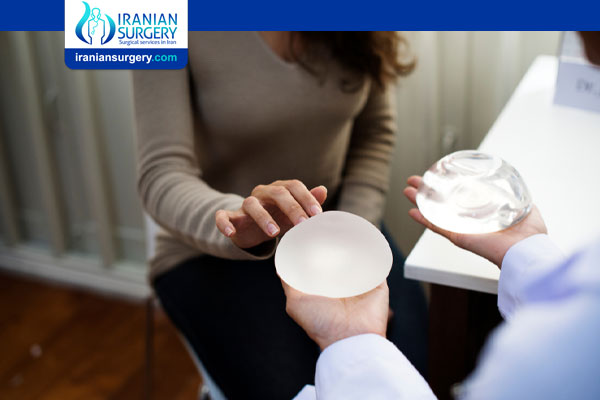Breast Implants Saline vs. Silicone
Breast Implants Saline vs. Silicone
If you're considering breast implants, you might wonder how to choose between saline-filled and silicone gel-filled implants. Here's help evaluating the options.
What's the difference between saline and silicone breast implants?
Saline and silicone breast implants both have an outer silicone shell. The implants differ in the filler material and consistency, however.
Saline breast implants
Saline implants are filled with sterile salt water. They're inserted empty, and then filled once they're in place.
Saline breast implants are available to women age 18 and older for breast augmentation and to women of any age for breast reconstruction.
Silicone breast implants
Silicone implants are pre-filled with silicone gel — a thick, sticky fluid that closely mimics the feel of human fat. Most women believe that silicone breast implants look and feel more like natural breast tissue.
Silicone breast implants are available to women age 22 and older for breast augmentation and to women of any age for breast reconstruction.
What are the risks of breast implants?
Saline and silicone breast implants pose similar risks, including:
. Scar tissue that distorts the shape of the breast implant (capsular contracture)
. Breast pain
. Infection
. Changes in nipple and breast sensation, often temporary
. Implant leakage or rupture
Correcting any of these complications might require additional surgery, either to remove or replace the implants.
In addition, with certain breast implants there is a low risk of developing a type of cancer known as breast implant-associated anaplastic large cell lymphoma (BIA-ALCL). Implants with textured silicone and polyurethane outer shells seem to have the highest risk. Although this type of cancer occurs in the breast tissue, it isn't breast cancer. It might require treatment with surgery, radiation and chemotherapy.
What happens if an implant ruptures?
If an implant ruptures, the approach might vary depending on whether the implant is saline or silicone.
Ruptured saline implant
If a saline breast implant ruptures, the implant will deflate — causing the affected breast to change in size and shape.
Your body will absorb the leaking saline solution without health risks, but you'll probably need surgery to remove the silicone shell. If you want, a new implant can likely be inserted at the same time.
Ruptured silicone implant
If a silicone breast implant ruptures, you might not notice right away — or ever — because any free silicone tends to remain trapped in the fibrous tissue (capsule) that forms around the implant. This is known as a silent rupture.
Leaking silicone gel isn't thought to cause health problems, such as breast cancer, reproductive problems or rheumatoid arthritis. Still, a ruptured silicone breast implant might eventually cause breast pain, breast thickening, or changes in the contour or shape of the breast.
If this happens, your doctor will likely recommend surgical removal of the implant. If you want a new implant, it can usually be inserted at the same time.
Is the safety of breast implants actively monitored?
Both saline and silicone breast implants are considered safe for breast augmentation and breast reconstruction. Research on the safety and effectiveness of both types of implants is ongoing.
What factors might I consider before getting breast implants?
If you're thinking about breast augmentation or reconstruction, it's important to understand what it means to have breast implants. In addition to changing your appearance, keep in mind:
. Breast implants won't prevent your breasts from sagging. To correct sagging breasts, you might need a breast lift in addition to breast augmentation. This procedure can be done at the same time or later.
. Breast implants aren't guaranteed to last a lifetime. Implant rupture is a possibility. As many as 20 percent of women who have breast implants need to have their implants removed within eight to 10 years.
Also, your breasts will continue to change after augmentation — and certain factors, such as weight gain or weight loss, might further change the way your breasts look. Any of these issues might lead to additional surgery.
. Mammograms might be more complicated. If you have breast implants, routine mammograms will require additional, specialized views. At the time of your mammogram, tell the radiologist at the place where you have your mammograms that you have breast implants.
. You might need an MRI scan. The Food and Drug Administration recommends routine monitoring with ultrasound or MRI after five to six years, then every two to three years afterward. However, recent studies show that there's little data to support routine screening unless you have symptoms.
. Breast implants might hamper breast-feeding. Some women are able to successfully breast-feed after breast augmentation, while others aren't.
. Insurance might not cover breast implants. Unless it's medically necessary — such as the need for implant reconstruction after a mastectomy for breast cancer — breast augmentation for cosmetic reasons is not covered by insurance. Be prepared to handle any expenses that accompany breast augmentation, including related surgeries or future imaging tests.
. You might need additional surgery after breast implant removal. If you have your implants removed, you might need a breast lift or other additional surgery to help your breasts look better.
What's the bottom line?
Based on your breast anatomy, body type and other factors, your surgeon might recommend one type of implant over another for the best results. Ultimately, however, the choice between saline and silicone is up to you.
About Iranian Surgery
Iranian surgery is an online medical tourism platform where you can find the best cosmetic Surgeons in Iran. All cosmetic surgeons working with Iranian Surgery specialize in plastic surgery and perform cosmetic surgeries in well-equipped hospitals, so after Breast Implants surgery in Iran you will face the least possible complications.
For more information about the cost of Breast Implants in Iran and to schedule an appointment in advance, you can contact Iranian Surgery consultants via WhatsApp number 0098 901 929 0946. This service is completely free.
Source:
. https://www.mayoclinic.org/healthy-lifestyle/womens-health/in-depth/breast-implants/art-20045957


